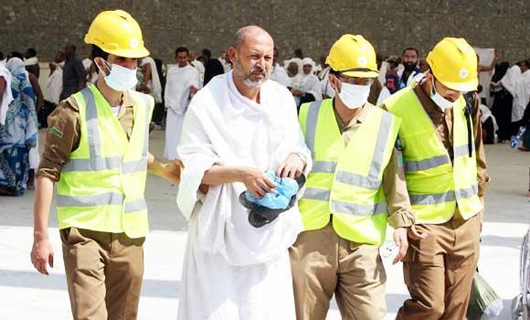
Jeddah, Aug 15: More than 20,000 seasonal jobs are available for Saudis during the upcoming Haj season, said Marwan Zubaidi, secretary-general of the General Syndicate of Cars and official spokesman for Haj transport companies.
Zubaidi confirmed , however, that many Saudis are still reluctant to take on such jobs, which were announced by the union more than two months ago.
“Drivers and technicians will earn a minimum of SR3,000, in addition to other incentives, bonuses and benefits,” he said. “Candidates can still apply up until Aug. 31.”
“Only 114 young applicants have expressed interest in working as drivers or technicians,” said Zubaidi. “We have even received approval for fifth-ranking government sector employees to acquire paid leave to take on these positions during Haj.”
He added: “Several reasons account for this low turnout, not least of which include the demanding and tiring nature of these seasonal jobs.”
Zubaidi said: “The syndicate, nevertheless, has been coming up with additional incentives and has launched a media campaign to target and attract Saudis to these positions.”
He added: “We have also called for the formation of a committee consisting of representatives from the Kingdom’s traffic authority, the Technical and Vocational Training Corporation (TVTC) and the Human Resources Development Fund, as well as representatives from the Ministry of Transportation, to help fill these seasonal vacancies in the transportation sector and offer attractive benefits, compensation and training.”
He said all citizens, including unemployed individuals and fifth-ranking government sector employees, can work for the companies transporting pilgrims during the Haj season between Makkah and Madinah by air, land and sea.
Drivers must acquire public drivers’ licenses for transporting large numbers of passengers, while technicians must have educational of professional experience certification, in addition to a national identity card and a letter to transfer employment from a government sector position.
Applicants must also undergo a medical examination and must be between the ages of 21 and 60 to qualify.
“Lack of interest in seasonal jobs is a problem we have been facing for a long time,” businessman Ziad Farsi, who owns one of the largest Haj transportation companies, told Arab News.
He said the problem can be solved through the provision of more training and development programs by the TVTC.
“More than 20 companies currently operate in the Haj transportation field in Makkah and can potentially employ thousands of Saudi youth,” he said.





Comments
Add new comment